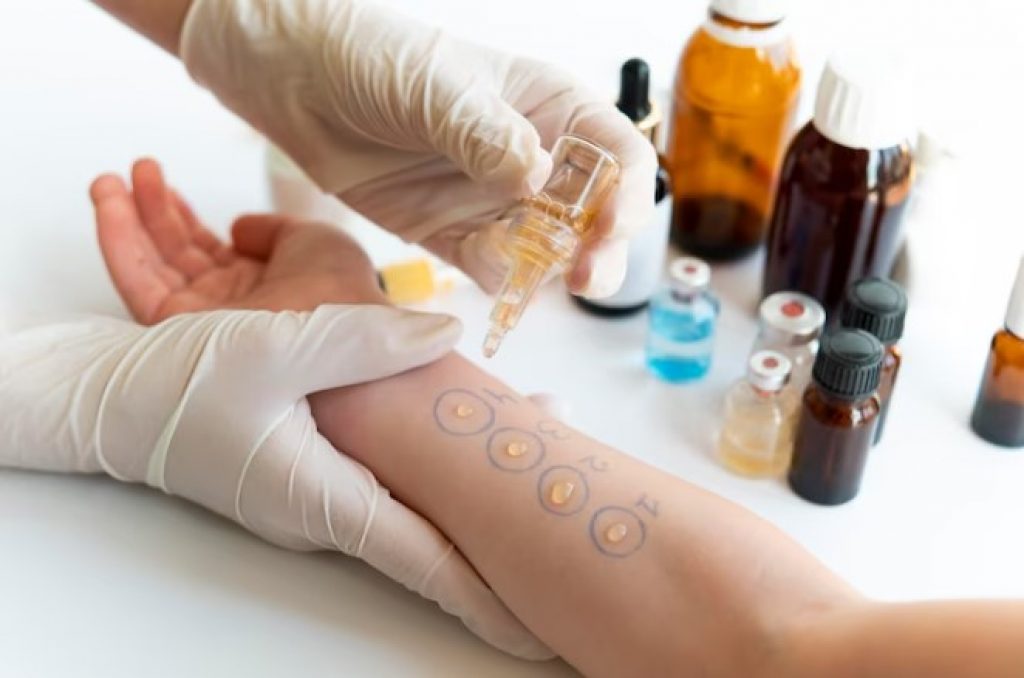
What Is A Dermatology Nurse?
Discover the vital role of a Dermatology Nurse in providing expert care for skin conditions. Gain insightful knowledge about their specialized skills and contributions to patient well-being.
What is a Dermatology Nurse?
A dermatology nurse is an RN specializing in diagnosing and treating skin illnesses and disorders. Nurses specializing in dermatology may treat patients with a wide range of skin disorders, from mild acne to serious burns and everything in between.

Some of these workers offer cosmetic dermatology services, including laser treatments, procedures, chemical peels, and a few cosmetic injections. Depending on their specific duties, a dermatology nurses may find employment in various healthcare facilities, including hospitals, private clinics, burn centers, dermatology institutes, and plastic surgeons’ offices.
What does a dermatology nurse do?
A dermatology nurse specializes in diagnosing, treating, and managing skin problems, illnesses, wounds, and infections. Patients undergoing plastic surgery or surgery to remove skin cancer may find their services invaluable. They are also useful for individuals with sun damage, which can manifest as discoloration. Among their primary functions are:
- Helping a dermatologist make a diagnosis by conducting skin checks alongside them.
- Aiding in the treatment of a wide variety of skin wounds/injuries (burns, ulcers, and rips).
- Carefully reviewing past medical records.
- Teaching patients what to expect after surgery.
- Providing cosmetic procedures or medical assistance.
- Guiding clients through a skin care regimen.
- Test results must be recorded and reported.
- Sharing diagnostic findings with patients.
- Preoperative care provision.
Where does A Dermatology Nurse Work?
Among the many possible workplaces for nurses with expertise in dermatology are
- A Specialty in Cosmetic Procedures.
- A cosmetic dermatology clinic.
- Emergency Rooms for Burn Victims.
- Hospitals.
- Infusion centers.
- Clinic of a plastic surgeon.
- Spas.
What are the Benefits of Dermatology Nurses?
Full-time and part-time dermatology nurses in any employment situation receive the same benefits. While specific perks may differ by school, most include at least the following:
- Medical coverage
- Choices Upon Retiring
- Paid time off for families
- Pregnancy Leave
- Coverage for Dental Care
- Vision Coverage Insurance
- Discounts
- Participation in nursing conventions
How to become a dermatology nurse?
If you’re ready to turn your interest in skincare into a full-time profession, you’ll need a plan. One place to begin is with
You can choose to pursue a nursing education that leads to either a Bachelor of Science in Nursing (BSN) or an Associate Degree in Nursing (ADN).
To take the NCLEX-RN examination (wearing one’s most at-ease scrubs). In most cases, becoming a registered nurse depends on passing this exam. We urge you to take the exam even if you haven’t settled on a concentration.
To be eligible to sit for the dermatology nursing certification exam, you must have completed at least 2,000 clinical hours in addition to working as a registered nurse.
Become board-certified as a nurse specializing in dermatology nurse practitioner. The DNC credential requires the candidate to achieve the standards above and take a multiple-choice exam.
What Qualities Do Dermatology Nurses Have?
Employers and hiring charge nurses seek the following qualities and attitudes in candidates in addition to nursing degrees, experience, and certifications:
- Taking charge and demonstrating sound discretion in all areas of decision-making and problem-solving.
- Working well with others, including doctors, managers, and other personnel.
- Taking part in pertinent CEU programs, such as a Laser Safety Course.
- Care and service for patients at the pinnacle of excellence.
- Receiving certification in dermatology nursing.
- Showing evidence of self-direction in one’s job.
- Updating and preserving clinical expertise.
- Displaying strong communication abilities.
- Possessing both rigidity and malleability.
How much schooling do dermatology nurses need?
Dermatology nurses need at least a bachelor’s degree, like other nurses. An associate degree in nursing may be sufficient for some positions. However, getting a Bachelor of Science in Nursing (BSN) is the greatest approach to position oneself for a wide variety of employment, as it opens up many more avenues for specialization.
When exactly may one begin working in dermatology as a nurse? It’s estimated that four to six years will be needed to earn the necessary degrees and credentials. The process of becoming a nurse practitioner typically requires five to seven years of schooling.
How much does a Dermatology Nurse Make?
As a registered nurse specializing in dermatology, you can expect to make a median annual salary of $80,860 and an average hourly rate of $39.00. The average salary for a registered nurse in the United States is $82,750 per year. Therefore, the earnings for this specialty are about the same. According to PayScale data from June 2022, the average yearly income for a surgical nurse is $60,330, while the average salary for a pediatric nurse is $60,680.
What are the Factors that Influence Dermatology Nurse Salary?
Here are some factors listed below;
Education and Experience:
As with any profession, the level of education and experience a dermatology nurse possesses plays a significant role in determining their earning potential. Generally, nurses with advanced degrees, such as a Master’s or Doctorate in Nursing, tend to command higher salaries. Additionally, gaining specialized certifications in dermatology nursing can further boost one’s earning potential.
Geographic Location:
The geographic location where a dermatology nurse practices can greatly impact their salary. In areas with higher costs of living or where there is a higher demand for dermatology nurses, salaries tend to be more competitive. Major metropolitan areas often offer higher salaries, but it’s worth considering the cost of living when evaluating potential earnings.
Work Setting:
Dermatology nurses can work in various settings, including private practices, hospitals, clinics, and outpatient centers. Each work setting may offer different salary structures and benefits. For instance, those working in private practices or specialized dermatology clinics might earn higher salaries than those in general hospitals.
Years of Experience:
As with any profession, the more experience a dermatology nurse accumulates, the higher their earning potential. Experienced dermatology nurses often earn higher salaries due to their expertise and the value they bring to their respective healthcare teams.
Is Dermatology Nursing Stressful?
The degree of stress that an individual nurse experiences on the job can be affected by several factors. Hospice nurses deal with death regularly, whereas dermatology nurses rarely do. At the same time, many neonatal intensive care unit nurses worry about their patients even when not on duty; dermatology nurses typically do not. However, difficulties specific to this field must be ignored.
FAQ’s
What is a Dermatology Nurse?
A Dermatology Nurse is a specialized nurse who cares for patients with various skin conditions and disorders. They work closely with dermatologists to diagnose and treat skin conditions, educate patients on skincare routines, and perform various dermatological procedures.
What qualifications does a Dermatology Nurse have?
To become a Dermatology Nurse, one must complete a Bachelor of Science in Nursing (BSN) degree and pass the National Council Licensure Examination for Registered Nurses (NCLEX-RN). After gaining experience as a registered nurse, individuals can pursue additional education and training specific to dermatology nursing.
What does a Dermatology Nurse do?
Dermatology Nurses perform various duties, including assessing patients’ skin conditions, providing wound care and medication administration treatments, assisting with dermatological procedures, conducting patient education on skincare and prevention, and documenting patient progress.
Where do Dermatology Nurses work?
Dermatology Nurses can work in various healthcare settings, including hospitals, dermatology clinics, private practices, and skincare centers. They may also collaborate with plastic surgeons, oncologists, and other healthcare professionals to provide comprehensive care to patients with skin-related conditions.
What types of patients do Dermatology Nurses care for?
Dermatology Nurses care for patients of all ages with various skin conditions, including acne, eczema, psoriasis, skin cancer, dermatitis, and more. They also care for patients undergoing cosmetic treatments, such as laser therapy, chemical peels, and Botox injections.
Can Dermatology Nurses prescribe medication?
Dermatology Nurses do not have prescription privileges on their own. However, they often work closely with dermatologists who can prescribe medications for patients. Dermatology Nurses assist in medication administration and educate patients on proper usage and potential side effects.







